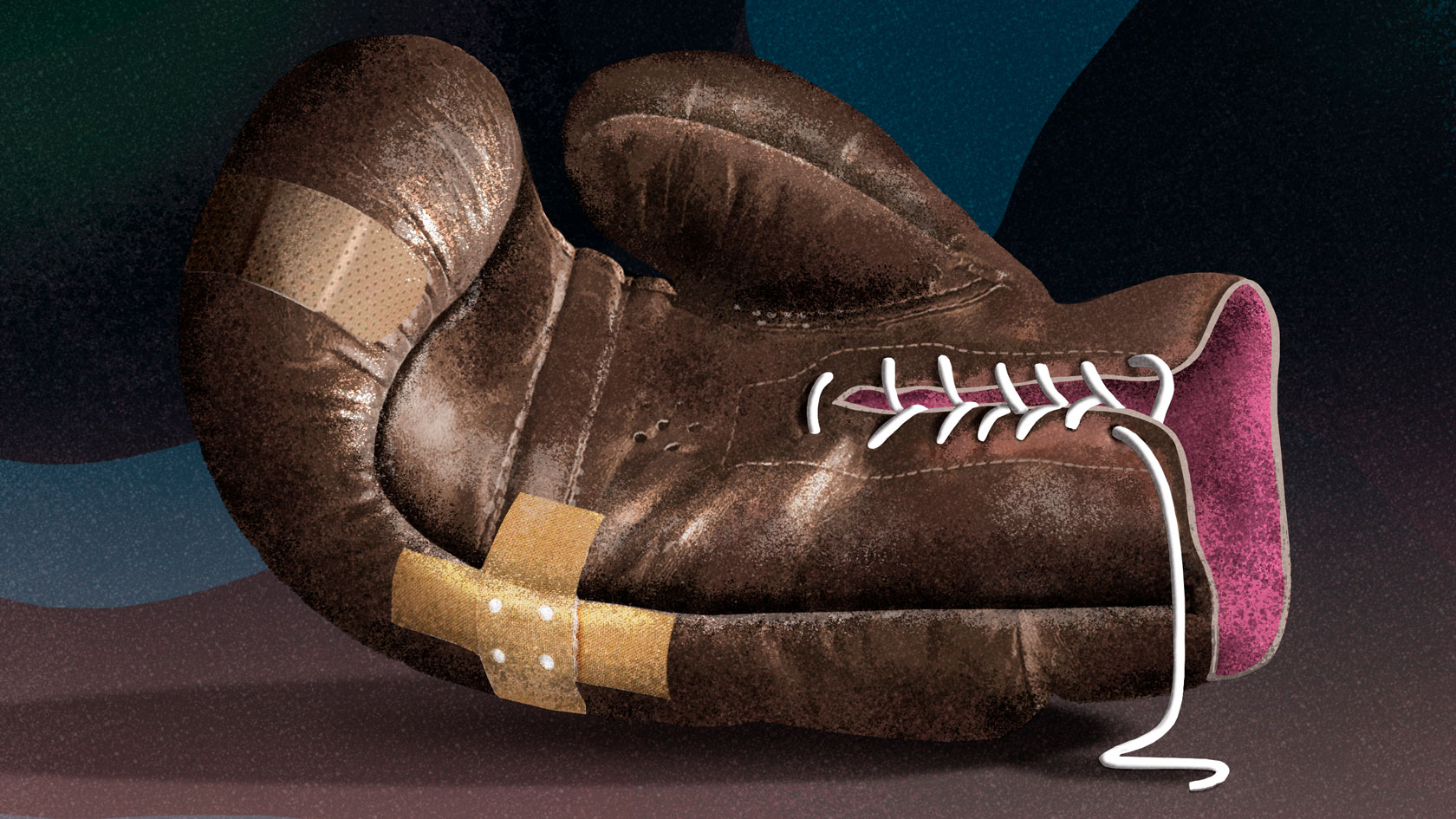Learn to Cry

When it comes to depression, the gender ratio seems clear. Statistics show that twice as many women suffer from depressive disorders than men and that around 10% of Switzerland’s population is affected by depression. But it’s not as simple as that. Appearances are deceiving, says UZH psychologist Andreas Walther and many other researchers along with him. They suspect a large number of unreported cases. This means that many more men suffer from depression than the statistics would lead one to believe. “In all likelihood, there’s a roughly equal number of women and men struggling with depression,” Walther says.
That’s because men with depression seek psychological counseling far less often than depressed women do and therefore do not show up in the statistics. Moreover, depression presents in men differently in part than in women. Women oftentimes find themselves in a depressive mood, feel listless and lethargic, tend to brood, and struggle with feelings of guilt or not measuring up. Depression in men, in contrast, often manifests in elevated irritability, aggression and impaired impulse control, or it causes men to overexercise, to overwork themselves or to seek escape in alcohol and drugs sooner than women do.
Since depression diagnostics in the past were geared to detect classic symptoms, the condition often went undetected in men. That, too, skews the statistics. The wind, however, has shifted a little in the meantime. “Awareness of gender-specific differences in depression has grown significantly in recent years in the field of psychology,” Walther says. “Typical male symptoms” accordingly are being taken increasingly into account in depression diagnosis.
Traditional ideologies of masculinity
Walther conducts research on depression in men. He is currently testing a type of psychotherapy specifically designed to help male sufferers of depression in a more effective and targeted way. But why do many men with depression find it hard to seek medical or psychological help?
Traditional masculinity ideologies – gender conceptions that define what behavior society expects from men – are a major reason for that, Walther says. According to those ideologies, men must be strong, must maintain self-control and have to solve problems on their own, even if – in the case of depression – they are not feeling well and all hope seems lost.

Awareness of gender-specific differences in depression has grown significantly in recent years in the field of psychology.
We grow up with female and male gender stereotypes, and we internalize them at an early age. “A girl is given a pink playsuit and a doll, and a boy gets a blue romper and a toy car,” Walther says, “and studies have proven, for example, that boys who do not behave in a gender-congruent way – by playing with dolls, for instance – receive harsher discouragement than girls who play football, for example. The same pattern continues into adulthood.” Despite all the current talk about gender diversity, these traditional gender roles are still imprinted on many of us even today, the psychologist says. That has consequences – for gender-specific handling of depression, for example.
Uncharted therapeutic territory
Another repercussion is that approximately three times more men than women commit suicide, often as a result of unrecognized and untreated depressive disorders. “However, we know that 60% of the men who take their own lives were in contact with the healthcare system at some point in the 12 months prior to committing suicide,” Walther says, adding: “This means that they reached out for help somewhere, but did not adequately receive the care they needed.” With tragic consequences.
Walther wants to better reach and optimally support those men, as well as males with less severe or onsetting depression, with a therapy specially tailored to them. The psychologist and his team are currently conducting a study to examine how well a male-specific therapy of that kind works on depression. The UZH scientists are thus operating largely in uncharted territory, as most psychotherapy studies on depression to date have been conducted mainly on women.
“This means that they investigated treatments that were aimed at and tested for the most part on women,” Walther says. It turns out that those therapies also work on men, but men benefit less from them than women do, and they break off therapy more frequently. The psychologist now wants to find out if men can be better supported in their needs through more targeted therapy and treatment.
Allow yourself to be vulnerable
Traditional conceptions of masculinity are not just one reason why male sufferers of depression are less prone to seek psychological help, but are also an obstacle in psychotherapeutic treatment. “In psychotherapy, a patient can let go of control, show vulnerability, and even cry once in a while if so inclined. Moreover, a therapy is a cooperative process in which a patient can also let the therapist take the lead at times,” Walther says. “Those are things that certain men have no trouble allowing. Others with a deeply ingrained traditional masculinity ideology have more difficulty doing that.” This is why discussing and coming to grips with gender roles are an essential element of Walther’s male-specific approach to therapy. One objective of the therapy is to resolve conflicts with the gender role – wanting to be strong while at the same time allowing oneself to be vulnerable.
In the future, Walther’s new therapy approach should benefit mainly younger men between the ages of 18 and 50, he says. “If we reach men at an early age, we can achieve the best therapeutic outcome and bring about greater life satisfaction in the longer run,” Walther explains. The psychologist will know how well the male-specific therapy works by next year at the latest when the results of the clinical study are in. In the best-case scenario, Walther’s customized therapy will enable more effective treatment of men with depression in the future and hopefully will also reduce the number of suicides.
This article appeared in the UZH Magazin 1/24.